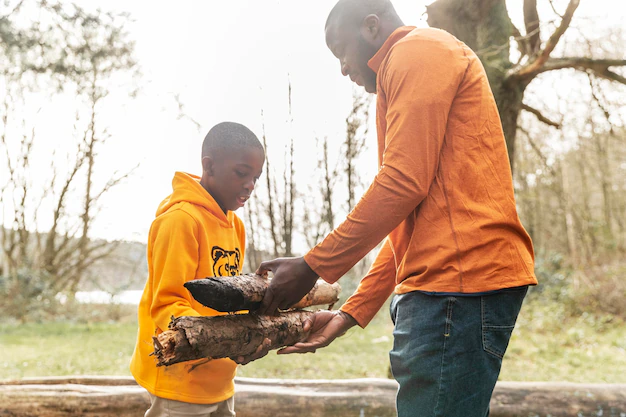South Africa is a country rich in cultural diversity, with a vibrant tapestry of traditions, languages, and customs. As South African dads, we have a unique opportunity and responsibility to pass on our cultural heritage to our children, ensuring that they grow up with a strong sense of identity and pride in their roots. Celebrating and preserving our cultural traditions not only connects us to our ancestors but also helps our children develop a deeper understanding and appreciation for the diverse society in which they live. In this article, we will explore the importance of celebrating cultural traditions and discuss how South African fathers can play an active role in passing on their heritage to their children.
Preserving Cultural Identity: Our cultural traditions are a vital part of who we are as individuals and as a community. They provide a sense of belonging, shape our values and beliefs, and contribute to our overall identity. By passing on our cultural heritage to our children, we help them develop a strong sense of self and a connection to their roots. Embrace your cultural identity and share stories, anecdotes, and experiences from your own upbringing. Teach your children about the history, language, music, dance, and cuisine associated with your culture. Encourage them to explore and ask questions, fostering an environment of curiosity and respect for different cultural traditions.
Participating in Festivals and Celebrations: South Africa is renowned for its vibrant festivals and celebrations that showcase the diversity of its people. As fathers, we can actively involve our children in these festivities to expose them to different cultural practices and celebrations. Attend traditional events, such as Heritage Day, Diwali, Eid, or traditional ceremonies, together as a family. Participate in cultural dances, dress in traditional attire, and engage in rituals and customs associated with these celebrations. This hands-on experience will leave a lasting impression on your children, fostering a sense of pride and appreciation for their cultural heritage.
Cooking and Cuisine: Food plays a significant role in our cultural traditions. Take the opportunity to teach your children about traditional recipes and cooking methods passed down through generations. Involve them in meal preparation, allowing them to experience the flavors, aromas, and techniques associated with your culture’s cuisine. Share the stories behind these dishes, explaining their significance and the occasions they are typically prepared for. Encourage your children to try new flavors and appreciate the diversity of South African cuisine.
Language and Communication: Language is a powerful tool for preserving cultural heritage. Teach your children your native language or any other languages that are part of your cultural background. Use these languages in daily conversations, storytelling, and family gatherings. This will not only help them communicate with extended family members but also deepen their connection to their cultural roots. Encourage them to ask questions, explore bilingual books, or participate in language classes or cultural exchange programs that promote language learning.
Engaging with the Community: Engaging with your local community and cultural organizations can provide enriching experiences for your children. Connect with cultural centers, community groups, or religious institutions that celebrate and promote your cultural traditions. Attend workshops, cultural exhibitions, or performances together. Encourage your children to interact with peers from different cultural backgrounds, fostering understanding, tolerance, and appreciation for diversity.
Celebrating Family Rituals: Family rituals are an essential part of cultural traditions. Whether it’s celebrating birthdays, anniversaries, or specific cultural milestones, create meaningful family rituals that reflect your cultural heritage. This could include lighting candles, reciting prayers or blessings, sharing stories, or engaging in specific customs and traditions passed down through generations. These rituals not only strengthen family bonds but also provide a sense of continuity and connection to our cultural heritage.
In conclusion, South African fathers have a crucial role in passing on cultural traditions to their children. By preserving our cultural identity, participating in festivals, teaching language and cuisine, engaging with the community, and celebrating family rituals, we can ensure that our children develop a deep appreciation for their heritage. By embracing and sharing our cultural traditions, we create a rich tapestry of diversity and instill in our children a sense of pride, respect, and curiosity about the world around them. Let us celebrate our cultural traditions and pass on the legacy of our ancestors to shape a brighter future for generations to come.










